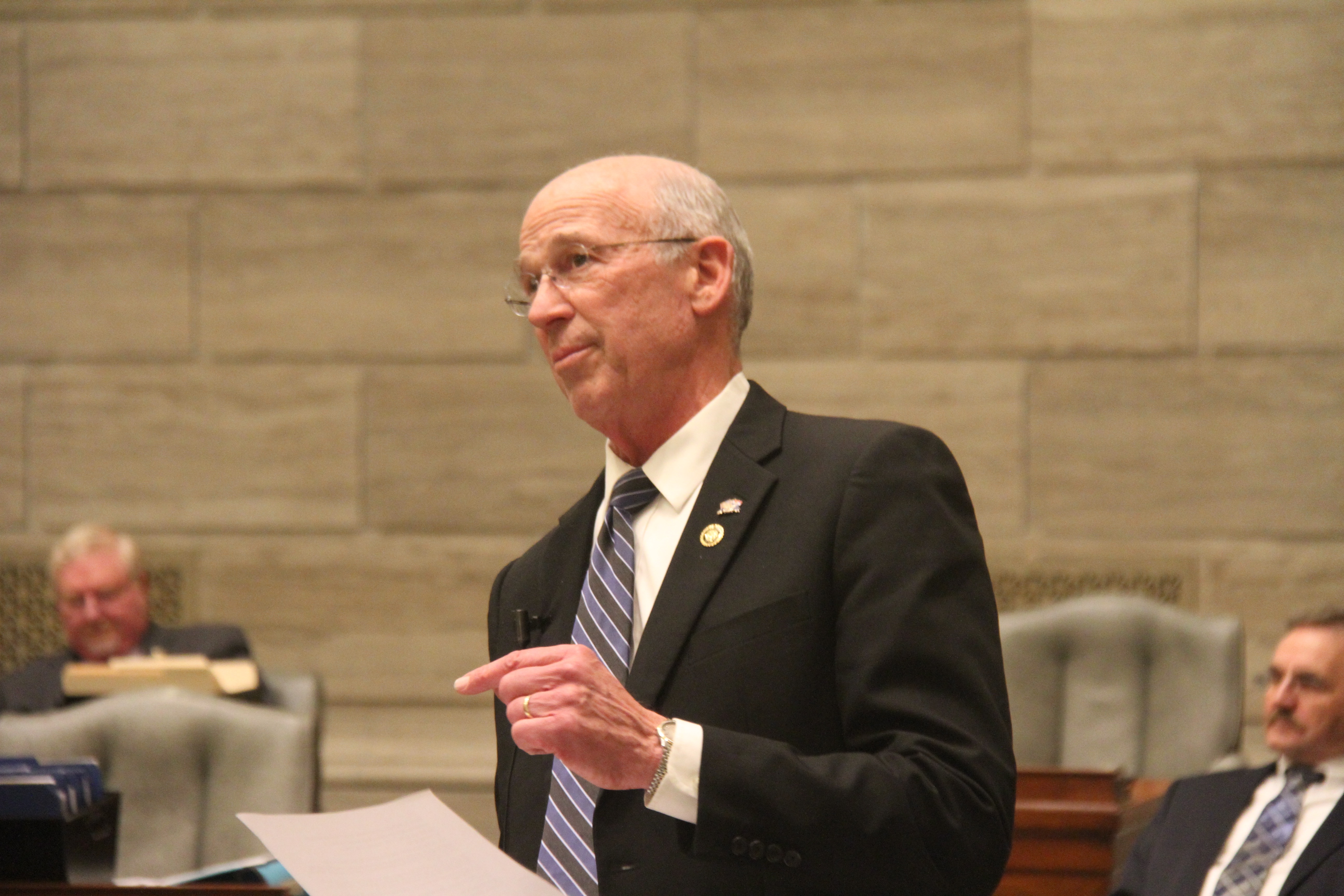JEFFERSON CITY, Mo. — A resolution encouraging public high schools to offer courses on the Bible was adopted by the state Senate Thursday.
The resolution from Republican Sen. Ed Emery contends the Bible has “been a cornerstone of Western civilization” for thousands of years and is engrained in art, culture, literature, music, philosophy and more. It states there is an “academic advantage” for students to have a “basic familiarity” with the Bible due — in part — to biblical references in literature and political discourse.
The resolution calls on public high schools to offer courses that include teachings on the Old and New Testaments in the Bible as well as requires world literature courses to include three weeks of lessons “on wisdom literature” from the religious book.
Additionally, the resolution says Missouri high schools should not “endorse, favor, or promote, or disfavor or discourage, any particular religion or nonreligious faith or religious perspective.”
Ahead of Thursday’s 29-5 vote, Sen. Jill Schupp pushed back on the adoption of the resolution. She said it could inadvertently become “exclusionary in nature” and was concerned it could be “directing us down a pathway supportive of only certain religions.”
“I don’t necessarily like that there’s a message being sent out that we are elevating certain religions above others,” Schupp told The Missouri Times, adding the floor discussion about the resolution wasn’t a “good use” of time considering “we have real public policy needs to be addressed.”
A controversial House bill with similar language currently sits on the Senate’s calendar. HB 267, championed by Republican state Rep. Ben Baker, would allow school districts to offer elective courses on Hebrew Scriptures as well as the Bible. Classes would focus on history, literary notes, societal influences, and contents of the religious texts, the bill states.
“There are frequent references made to the Bible in literary works that — unless a student has a basic understanding of the Bible — they’re not understanding what that author is referring to,” Baker has previously said.
However, critics of the bill have worried it’s too exclusionary of other religious texts that have made an impact on world history or literature — such as the Quran — and others have maintained biblical teaching is already legal from an educational standpoint.
“As we read the bill, it really doesn’t do anything that isn’t already allowed in school districts right now, as far as incorporating the Bible into academic coursework,” Brent Ghan, deputy executive director of the Missouri School Boards’ Association, has said.
Schupp, too, noted it’s already acceptable for public schools to teach about religion in certain contexts and is not supportive of the House legislation.
“By the way it’s written, it’s designed to exclude,” Schupp said. “Why do we want to put this into place in this very time when people in this country are divided over so many different things?”
The House passed the bill in March with a 95-52 vote. In the Senate, Emery is the handler of the legislation.

Kaitlyn Schallhorn was the editor in chief of The Missouri Times from 2020-2022. She joined the newspaper in early 2019 after working as a reporter for Fox News in New York City.
Throughout her career, Kaitlyn has covered political campaigns across the U.S., including the 2016 presidential election, and humanitarian aid efforts in Africa and the Middle East.
She is a native of Missouri who studied journalism at Winthrop University in South Carolina. She is also an alumna of the National Journalism Center in Washington, D.C.
Contact Kaitlyn at kaitlyn@themissouritimes.com.








